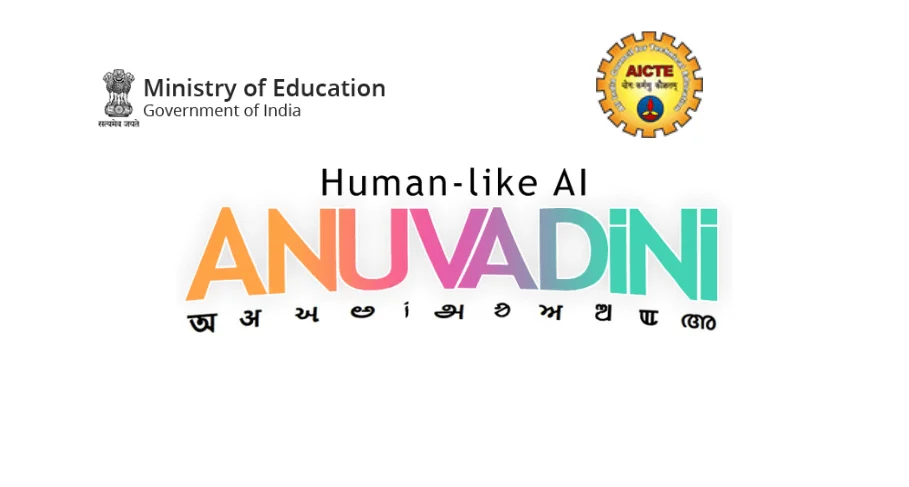In a significant move towards promoting multilingualism in education, the Union government has announced the ‘Anuvadini’ app, an Artificial Intelligence-based platform. The initiative aims to make study material for all school and higher education courses available in digital form, specifically in Indian languages listed in the 8th Schedule of the Indian Constitution. This step aligns with the National Education Policy (NEP) 2020 recommendations, emphasizing the importance of studying in one’s mother tongue.
The University Grants Commission (UGC), All India Council of Technical Education (AICTE), and the Department of School Education have also been directed to take appropriate action regarding the state’s schools and universities. On January 20, the Ministry of Education issued an order directing all school and higher education regulators such as UGC, AICTE, NCERT, NIOS, and IGNOU, as well as heads of institutions of national importance such as IITs, CUs, and NITs, to make study materials for all courses available in Indian languages within three years.
Deepak Kesarkar, the school education minister, commented:
All guidelines have been issued from the National Education Policy 2020 recommendations to promote multilingualism in education at every level so that students can study in their language and achieve better academic results. Studying in one’s language can provide a natural opportunity for students to think innovatively without any language barrier. The NEP 2020 asserts that India’s multilingual nature is its greatest asset and strength and must be efficiently utilized for the nation’s socio-cultural, economic, and educational development.
The Anuvadini: Voice & Document AI Translation Tools, which includes plenty of features and functionalities, aims to reduce the gap caused by language barriers. The tool supports 22 regional Indian & foreign languages, helping break language barriers & bringing together India and the World under the principles of Ek Bharat Shrestha Bharat and One Earth, One Family, One Future. While it began as a technology solution for providing equitable access to quality education, the Anuvadini bouquet of tools now has numerous and evolving use cases, with the expected impacts of smooth communication and information flow in the domains of External Relations, Agriculture, Commerce, Railways and Transport, Scientific Research, and Innovation.
Chandrakant Patil, Higher & Technical Education Minister, added:
Content creation in local languages will boost this multilingual wealth and pave the way for better contributions to the Viksit Bharat campaign to establish our country as a developed nation by 2047.
He further stated:
The Union and state governments have been working in this direction for the last two years by translating the books of engineering, medical, law, undergraduate, postgraduate, and skill courses through an artificial intelligence-based app called ‘Anuvadini’ These books are available on the e-Kumbh portal. Even in the school education ecosystem, study materials are available in more than 30 Indian languages on the Diksha portal. Competitive exams like JEE, NEET, and CUET are also conducted in 13 Indian languages.
